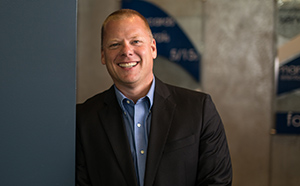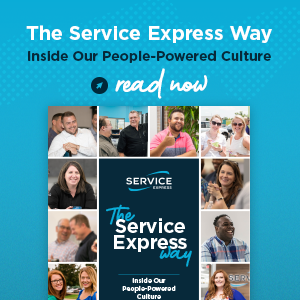Previously, I wrote about an acceptance speech that Matthew McConaughey gave at the Academy Awards. In it, he recognizes that his competition doesn’t come from what others are doing, it comes from what he is doing. He isn’t chasing what others are doing today, he’s chasing the person he should be in 10 years.
Too often, people get caught up worrying about what others are doing around them; their accomplishments, their failures, how they reinvent themselves, their strengths, their weaknesses, their ability or their inability to bounce after a failure and they benchmark their own success on it.
Such an outward looking singular focus can be damaging, because:
- When we measure our success against others, it is a constant moving target and it shapes, and then reshapes, our activities, our behavior and our self worth. When we cannot surpass someone, the effects can weigh us down and can minimize the impact that we are actually having.
- We look at the larger accomplishments of others and we don’t see the challenges they had to overcome in order to achieve them. We forget to look at the smaller successes that we accomplish everyday. The smaller successes that, if we consistently and methodically accomplish on a regular basis, compound and over the course of time lead to much larger successes.
- Our success should not be measured on the same scale others use to measure their own success. Every person is unique, with unique skill sets and strengths. The strengths that one person leverages in order to accomplish something great are most likely not the strengths that we must leverage in order to accomplish something great.
This is an apt analogy for those of us in business and in leadership. Too often, we fall into the trap of defining our organization’s goals and measuring our progress by benchmarking ourselves against the competition. We spend our resources trying to chase the competition. The danger is, there’s a chance we just might catch them.
It typically begins with statements like “I’ve heard that [insert competitor name] is doing this, maybe we should consider doing it as well” or “Did you see the news item on [insert competitor name], it seems to be working for them, maybe we should try that.” When that mindset creeps in, and those statements begin to determine the priorities of an organization, things turn to chaos because employees lack both purpose and direction.
At Service Express, our goal is not to beat the competition. Our goal is to do the right things and to be the best company we can be for our employees and our customers. We have a strategic growth plan, and it maps out exactly what success looks like for us in the years ahead. We chunk that vision down into monthly, quarterly and yearly goals and then we measure our progress using our SR5 Performance Measurement System. We do not have a single scorecard that benchmarks what we’re doing against our competitors. Our scorecards reflect our goals for the months, quarters and year ahead.
A great example is our net promoter score. In an industry that averages 23.1, we could define success by reaching 22 if we were chasing the competition. But we’ve charted our own course, and we’re leveraging our own strengths, and because of it our customers have given us an 80.8.
It’s worked for us.
Who are you competing against?

